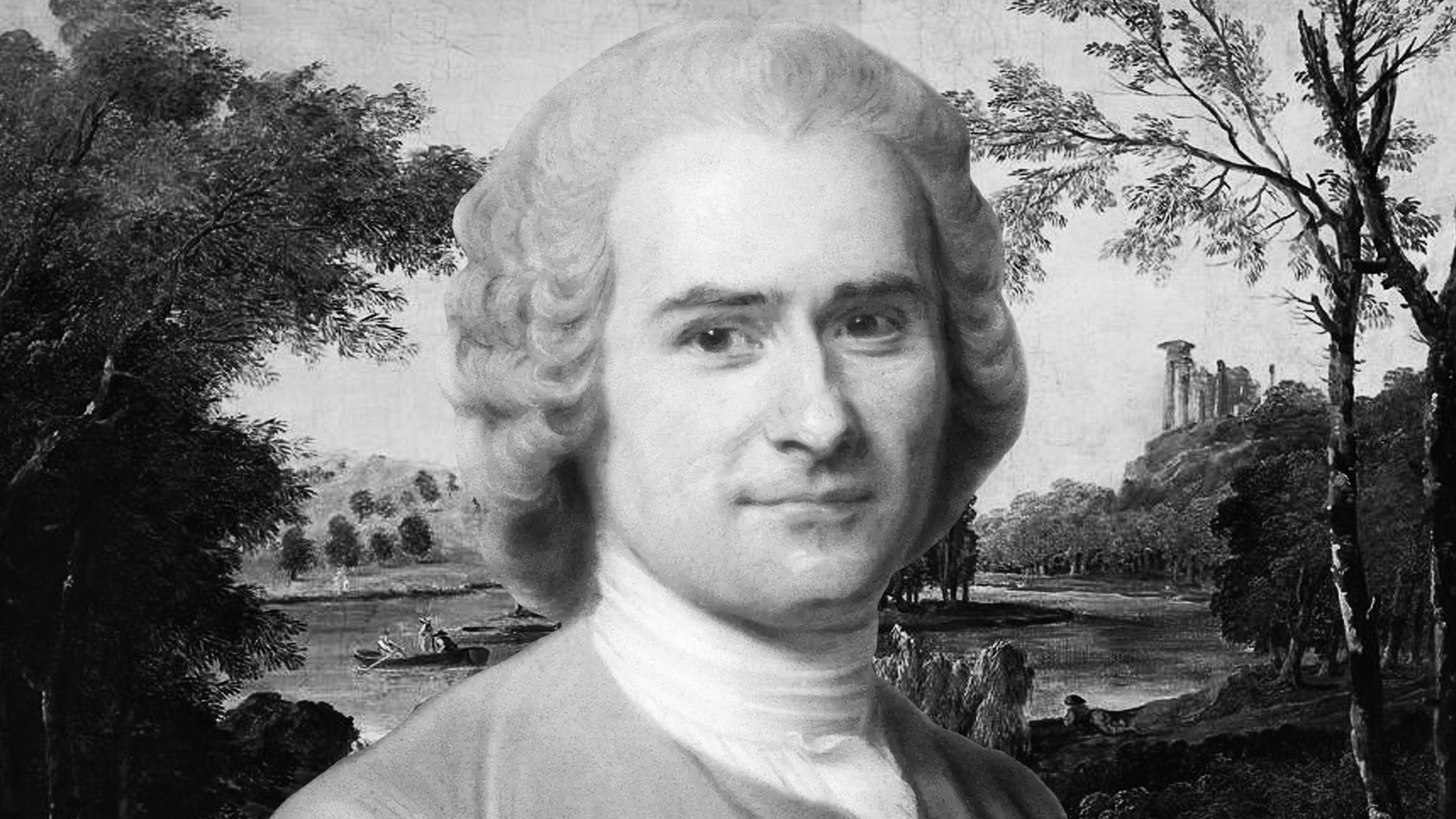Jean-Jacques Rousseau

Portrait of Jean-Jacques Rousseau looking contemplative, with a book in one hand and nature in the background.
Biography
Jean-Jacques Rousseau was the Enlightenment’s wild card, a philosopher who said progress wasn’t always progress and civilization might be making us worse, not better. Born in Geneva in 1712, Rousseau lost his mother days after birth and was raised by a father who read Plutarch aloud and then skipped town after a duel. From then on, Rousseau bounced between apprenticeships, lovers, patrons, and cities — always searching for meaning, truth, and a stable place to write.
He found fame in 1750 by winning an essay contest with a shocking take: that the arts and sciences had corrupted human morals. That rebel spirit fueled his next major work, 'Discourse on the Origin of Inequality,' where he argued that humans are naturally good and it’s society, property, and artificial power that mess us up. Hobbes said we’re all brutes unless restrained by force. Rousseau replied: maybe we’re only brutes because we’ve been shackled and turned against ourselves.
In his most famous political work, 'The Social Contract' (1762), Rousseau made his boldest claim: that legitimate government isn’t about rulers commanding subjects, it’s about free individuals forming a collective ‘general will’ that expresses the true interest of everyone. Freedom, he argued, isn’t doing whatever you want; it’s living in a society where laws are made by and for the people. 'Man is born free, and everywhere he is in chains,' he wrote, a line that still burns with revolutionary fire.
He also rewrote the rules of education with 'Emile,' argued for the authenticity of feeling over rigid Enlightenment rationalism in 'Julie, or the New Heloise,' and paved the way for Romanticism and modern psychology with his introspective 'Confessions' and 'Reveries of the Solitary Walker.'
Rousseau died in 1778, isolated and paranoid, yet convinced he was right about nature, about freedom, and about the human soul. Love him or hate him, he shook the Enlightenment to its core and his fingerprints are all over our debates on democracy, inequality, and what it really means to be free.
Rousseau helped launch modern political philosophy and redefined what freedom means, not as unchecked choice, but as collective will rooted in shared humanity. His work influenced revolutions, reformed education, and still asks tough questions about power, progress, and the soul of a just society.
?
How does Rousseau’s idea of the ‘general will’ differ from modern democracy?
What are the dangers of romanticizing nature and the ‘noble savage’?
How did Rousseau’s conflicts with other Enlightenment thinkers shape his philosophy?
Is individual freedom possible in a society built on collective rules?
How do Rousseau’s ideas on education compare to modern child-centered learning?
Dig Deeper
A quick, clear animated breakdown of Rousseau’s major ideas on freedom, government, and the social contract — perfect for visual learners.
Discover more

Thomas Hobbes
Thomas Hobbes was a 17th-century English philosopher whose brutal honesty about human nature helped shape the foundations of modern political thought.

Nelson Mandela
Nelson Mandela was a South African freedom fighter who spent 27 years in prison for resisting apartheid and became the country’s first Black president.

Franklin Delano Roosevelt
Elected during the depths of the Great Depression, Franklin Delano Roosevelt reshaped American government, restored public confidence, and led the nation through economic collapse and global war.
Further Reading
Stay curious!
